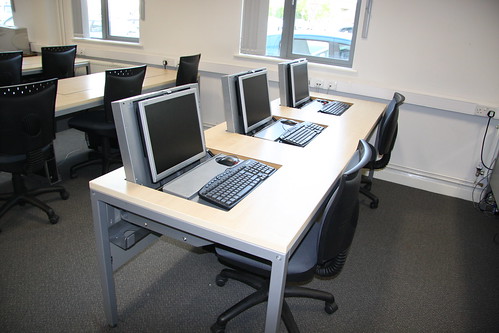Journal Post 4
Integrating
Technology and Creating Change.
How can
teachers integrate technology into their work as educators?
Let’s start with the definition of
technology integration and educational change. Technology integration refers to
ways that teachers build technology into all aspects of their professional
work. Educational change refers to innovations by teachers that create new
patterns of teaching and learning in school. Together they make technology a
central part of education, enabling the unique, powerful, and transforming
impacts of computers and other tools to be part of every student’s daily
experience in schools.
Technology integration doesn’t mean
computer technologies replace nonelectric resources in every teaching
situation. You have to be creative with it! This way, together with your
students, discover the power of computer technologies. The use of technology
can be subsided in three primary ways. One way is inside-the-classroom teaching
tools. Teachers use technology to present academic material and create
interactive learning experiences for students in the classroom. An example is like the infamous PowerPoint
presentations we have all used at least once in our life. I personally love it
because I’ve grown accustom to using it. A second way technology can be used is
outside-the-classroom as a professional resource. By this I mean, using
technology to manage the administrative demands they face in school. One common
example is keeping their grades and attendance recorded. Technology can come in
handy when trying to do recordkeeping. Teachers have slowly change their ways
and have come more dependent on the programs that computer offer to make their
jobs a little easier. Finally, the third primary way is inside- and
outside-the-classroom learning resources for the students. In this category
teachers ask students to use technology in academic learning during class time
as well as outside of school. Group projects, internet research, and creative
writing are some great examples of this.
 |
| http://www.flickr.com/photos/jamesclay/ |
At the end of the day, the goal is to help technology become
a daily part of learning. It can extend the time that teachers may spend with
students, making it possible for teachers to individualize instruction for
students who need the extra help. Let’s face it; we all know there will be
always those students who need the extra help, who need that extra attention.
In today’s time, we have the opportunity to have computers that have different
learning tool programs, at different levels, for every individual student. We
need to take advantage of it! It has also given teachers the chance to organize
and manage their work electrically. Duties can be conducted using multiple
forms of information technology—from word processing, email, recordkeeping
software to manage attendance, etc. Just an endless amount of opportunities are
given with technology and why not use it!
Edutopia
Edutopia, is one of the websites of Tech
Tool links that I explored. It had a tremendous amount of information and inspiration
on how to successfully integrate technology into the classroom. It offered a
variety of different links to articles, blogs, guides, and even videos for insights
on what you were looking for. I explored around the integration of technology because
that is what I mainly focused on in this chapter. The guidelines they have are
very useful and appropriate for a classroom teacher. Overall, I consumed a great
amount of information that will come in handy when I become a teacher.
Summary
Chapter four overall focuses on technology integration and
educational change to help teachers introduce technology into both classroom
instruction and professional work outside the work force. Of course, issues and
strategies were brought upon with ways for teachers to address the problems of
the digital inequality and participation gap. Unwillingness to change a favorite
lesson to include technology was probably the one I was must familiar with.
After many years of being a student, I have witnessed this with my own eyes.
Many of the teachers had all these new gadgets in their rooms and never once
used them to their ability! They were afraid it would change the way they
taught. Change is good. And if technology can be used to improve your teaching,
why not use it? The chapter also introduced new concepts such as, ‘informing”
and ‘automating”, and there were also strategies for using whatever technology teachers
had to promote a way into teaching and learning.
No comments:
Post a Comment